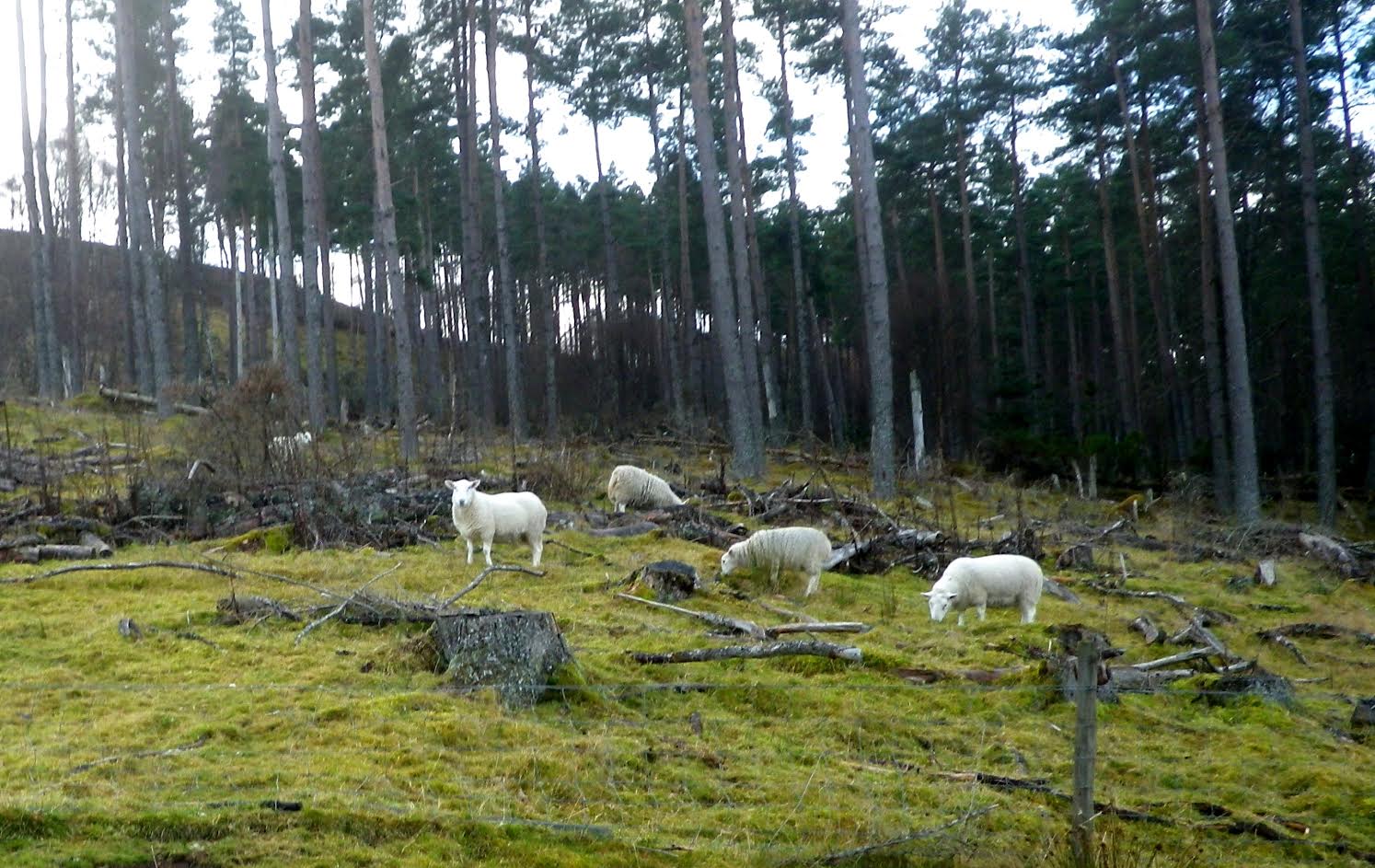
Stray sheep in Scotland's forests are to become a thing of the past as the Forest Enterprise Scotland is to work closely with farmers to better manage rogue sheep.
A particular worry is that unregulated movements of sheep in forests poses a biosecurity risk.
A key element highlighted in the guidance is that incidents of straying sheep are normally resolved quickly when a continued, honest and open dialogue is entered into.
FES worked with Police Scotland and the Scottish Government to produce the guidance with industry bodies such as the NFU Scotland, National Sheep Association and Sheep Scab Industry Group.
Robin Waddell, Forest Enterprise Scotland’s Agriculture Advisor said: “For the vast majority of cases we work very well with our neighbours and can resolve sheep trespass issues pretty quickly.
“This is how we would like to continue – keeping an open dialogue throughout and working together to get the animals back to their owners. Unfortunately it doesn’t always go that way and the guidance will help our staff manage the times when action is needed.
“Recent records show there to be a particular problem with stray sheep in the south of Scotland. We recorded around 190 separate incidences involving 1,500 animals in the Borders, Galloway and Dumfries areas. We have now introduced a consistent approach to recording incidents across the country so that we can get a better idea of impacts across Scotland.
'Animal welfare is a concern'
A particular worry is that unregulated movements of sheep in forests poses a biosecurity risk, specifically in terms of the scourge that is sheep scab and the transmission of tree diseases.
Mr Waddell continued: “Animal welfare is also a concern and this issue is often reported when we have had to deal with unmanaged sheep.
"Another direct impact on Forest Enterprise Scotland is the browsing that stray sheep can cause – this is a drain on our financial resources.
“We have a duty to protect and manage designated areas of land so there is a real need to tackle these incidences as quickly as we can. The guidance aims to achieve a good result for all concerned.”
The guidance for FES staff highlights the current policy, legal position, roles and responsibilities and options for tackling unmanaged sheep on the National Forest Estate.
'Biosecurity risk'
Penny Johnston of NFU Scotland said the union supports the production of this guidance.
“Feral or straying sheep can be a biosecurity risk and in some areas are responsible for the perpetuation of disease, such as sheep scab.
“A lack of clarity over how to deal with feral or stray sheep creates barriers to the removal of these animals and clear protocols should make it possible to deal with these animals effectively and fairly.”
A spokesperson for Police Scotland said: “Police Scotland recognise the work of Forestry Commission Scotland to bring better understanding to this complicated area and welcome their action to assist in discharging the duties under the relevant legislation, which will better protect Scottish farmers."
